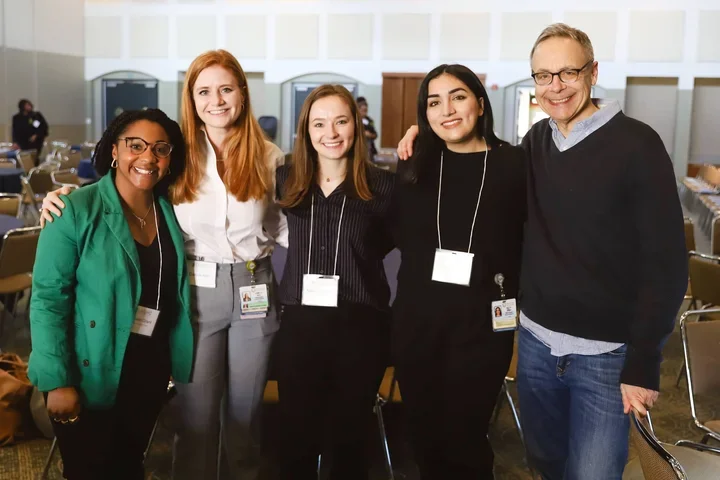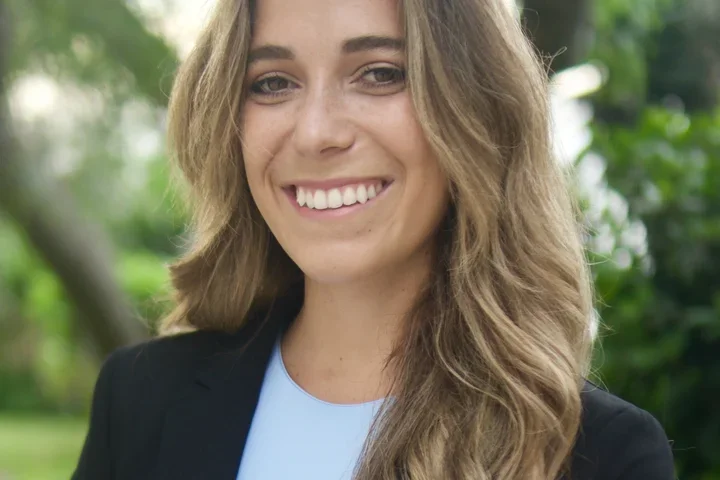Alumnus Dr. Seth Judson '19
A physician in the trenches of pandemic preparedness

He has built a research career around investigating globally emerging zoonotic diseases and preparing for pandemics. During the Ebola epidemic in West Africa, Dr. Judson designed projects with the National Institute of Health (NIH) to understand Ebola virus transmission and predict regions at risk for spillover. As a DGSOM medical student, he collaborated with national experts in Cameroon to make predictions of emerging zoonotic viruses more useful for policymakers. Throughout the residency, Dr. Judson has worked with colleagues to prevent hospital-acquired infections of SARS-CoV-2 and to assess regional vulnerability for COVID-19 in Africa. GHP recently caught up with Dr. Judson to learn more about how his work in pandemic preparedness has informed his clinical practice since March 2020.
GHP: You have built a research career, which started prior to medical school, around emerging zoonotic diseases and pandemic preparedness. How has the COVID-19 pandemic influenced your research agenda, if at all?
Dr. Judson: Prior to the COVID-19 pandemic, I had investigated emerging coronaviruses and nosocomial transmission of viruses with Dr. Vincent Munster at the NIH. When SARS-CoV-2 emerged, Dr. Munster was one of the first scientists to study the virus in the laboratory setting, and I was taking care of some of the first patients with COVID-19 in the US. With these combined clinical and research perspectives, we were able to answer early questions regarding airborne transmission of SARS-CoV-2 and risks for transmission among healthcare workers. Witnessing the devastating effects of this pandemic has further reinforced my desire to help translate research into actionable items for pandemic preparedness. For instance, the global impact of the pandemic has made me realize the importance of data reporting, healthcare systems, and regional risk factors. As a DGSOM student, I previously collaborated with national experts in Cameroon to prepare for outbreaks of emerging viruses. Building off this project, I have been working with UCLA’s Dr. Kevin Njabo and international experts in Africa to address COVID-19 data reporting practices and regional vulnerability.
GHP: Did you learn any valuable lessons while providing care for COVID-19 patients that have informed your research, or found that your research prepared you for being a provider during the pandemic?
Dr. Judson: My research background enabled me to question and address some of the early misunderstandings surrounding SARS-CoV-2 transmission, helping us better protect patients and healthcare workers. Having studied these viruses in the laboratory setting, I understood modes of transmission and knew that there was not a clear distinction between airborne and droplet transmission, which confused many clinicians. As a physician, I have gained many insights while caring for COVID-19 patients that have informed my research. In particular, I have realized how critically important and complicated it is to effectively communicate science. The ongoing challenges with masking, physical distancing, and vaccine hesitancy reflect global gaps in scientific communication. As a result, I am looking for better ways to translate research findings for patients and policymakers.
GHP: We understand that you intend to participate in a fellowship program next year. What attracted you to the programs where you applied? In what ways can a fellowship program help you to achieve your unique career goals?
Dr. Judson: I have had a nontraditional career path in medicine with my interest in the intersection of human and animal health, zoonotic diseases, and pandemic preparedness. My goal is to be an academic infectious disease physician-scientist so that I can care for patients, teach students, and investigate emerging zoonoses. While applying to infectious disease fellowship programs, I sought out programs that would support this path through mentorship and career opportunities. Specifically, I looked for programs that had interdisciplinary research mentorship, strong international collaborations, and diverse clinical training. It has been an incredible experience meeting many inspiring leaders in the field during the interview process, and I am excited to see where my path leads next.
Thank you, Dr. Judson! We are also excited to see where you end up for your fellowship training, and hope to have you back at UCLA in the future! To learn more about Dr. Judson's work, visit his website.



